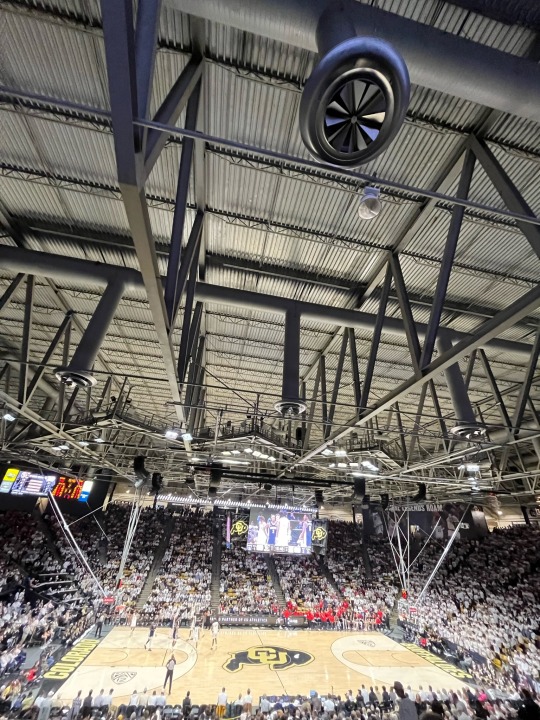#uofa
Text

Jupiter's Moon "Io" as imaged by NASA's Galileo spacecraft.

Io, the innermost of the four moons of Jupiter discovered by Galileo Galilei in 1610 and only slightly bigger than our own moon, is the most geologically active body in our solar system. Hundreds of volcanic areas dot its surface, which is mostly covered with sulfur and sulfur dioxide.
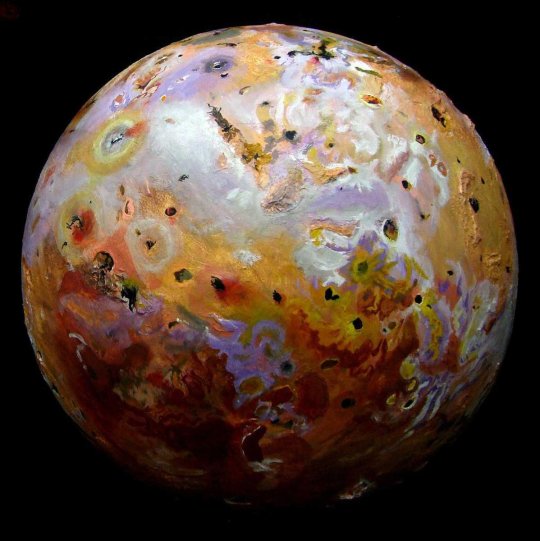
The largest of these volcanic features, named Loki after the Norse god often associated with fire and chaos, is a volcanic depression called patera in which the denser lava crust solidifying on top of a lava lake episodically sinks in the lake, yielding a raise in the thermal emission that has been regularly observed from Earth. Loki, only 124 miles in diameter and at least 373 million miles from Earth, was, up until recently, too small to be looked at in detail from any ground-based optical/infrared telescope.
Io's surface temperature averages about minus 202 degrees Fahrenheit.
29 notes
·
View notes
Text

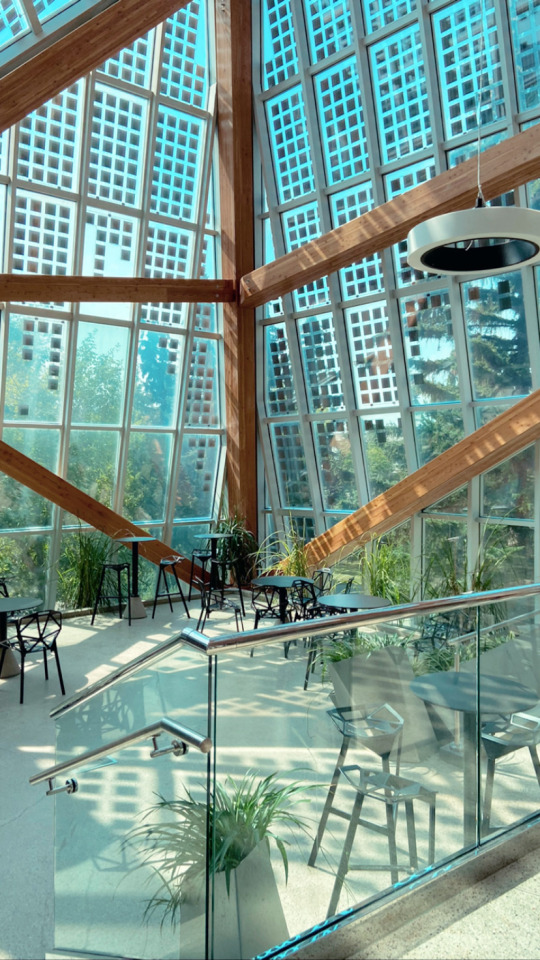



Although university has just started, lots has happened in a short amount of time; met lots of new friends, participated in lots of events, seen lots of amazing sights. But this is just the start of a long, but great journey.
14 notes
·
View notes
Text
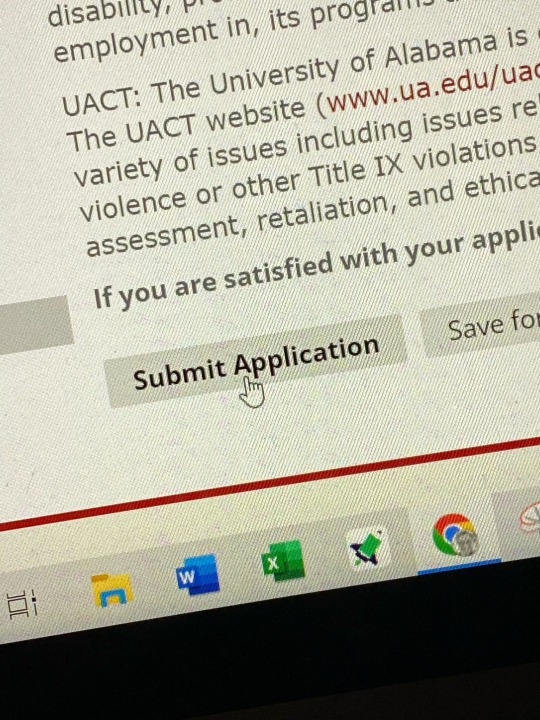
🤞🏼🤞🏼🤞🏼
#graduate student#graduate school#uofa#alabama#university of alabama#doctorate#phd student#special education#teacher#big changes#its happening#what did i just do
3 notes
·
View notes
Text

Junya Wantanabe SS06 Arkansas Football Varsity Moto Jacket
2 notes
·
View notes
Text
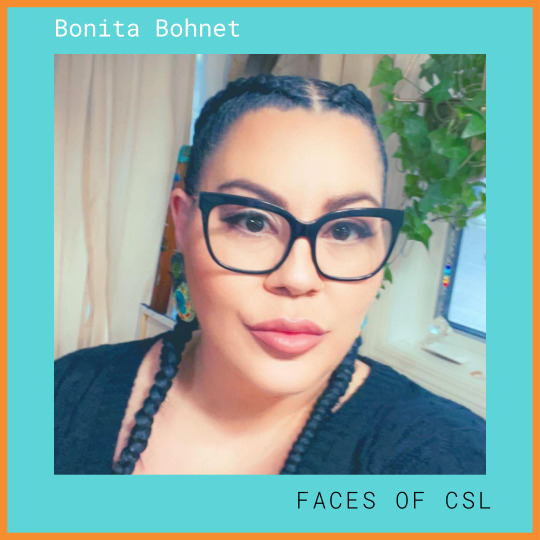
Bonita Bohnet- Bachelor of Arts, Faculty of Native Studies
Bonita Bohnet (she/her) is Métis and is completing her Bachelor of Arts in the Faculty of Native Studies. She is in her fifth year and final term at the University of Alberta. Bonita has been an intern in the Humanities 101 Program (HUM) within CSL for three years.
Can you trace your involvement with CSL?
When I first became involved with CSL, I participated in the Humanities 101 class in 2019. The Humanities 101 Program offers free, non-credit university education to people who face barriers to post-secondary education by valuing their lived experiences and knowledge. From there, I became a university student. After my first year of university, I interned for Humanities 101 and have been with the program for three years. So, it’s been wonderful being able to do that. Besides my involvement with HUM, I’ve also taken CSL courses within my studies.
Why did you decide to take your first CSL course?
I took my first CSL course by accident! So, I’m also in the Indigenous Governance and Partnership Certificate, embedded in the Faculty of Native Studies. I took a mandatory course, Colonization and Decolonization, to fulfill the certificate requirements. I was informed that there was a CSL component only once I started the class. It was my first CSL class, and it was great!
What CSL placements have you completed?
I completed my placement with Métis Crossing while I was enrolled in the Colonization and Decolonization course. We were placed in groups and tasked with creating an interactive activity that could teach people about the different aspects of the Métis Nation of Alberta Constitution. As part of my group, we developed a Geocaching activity, where people can learn about various aspects of the Constitution and Metis history while exploring. Geocaching is like a scavenger hunt. It’s a worldwide activity with an app attached to it. While people are out in nature, they can hide little notes or trinkets and upload the location coordinates to the free app. This included an official kit from Geocaching that included tags and other materials that Métis Crossing could put in their vicinity. People participating in Geocaching can go there and engage with it and feel like, “Oh, there’s something we can customize!” So, that was a fun one, and I enjoyed it.
Last spring of 2023, I was in the course CSL 370: Special Topics and Community Engagement, Uprooting and Embedding Knowledge. This one was really great, too! We went to various community organizations, from Boyle Street to Kindred House. We also met with Elders, and a lot of our experience was outdoors. It was really about getting to know people and building relationships with those who access and are involved in the services, so it was more relational. We did a lot of gardening, which was related back to the land. For instance, we made seed bombs, planted seeds, walked in the forest, and explored urban gardens.
I am currently in my third CSL course, a capstone course for my certificate in Indigenous Governance in Partnership, and currently completing a placement with the Keewatin Tribal Council in Northern Manitoba. The Tribal Council represents multiple First Nations communities, and they are in the process of starting their land claims and negotiations with the government. We are working with them to form a partnership. They wanted to know about different First Nations governments, the scope of their law-making power, the kinds of government models used, and fiscal relationships. I’m analyzing the Tlicho Nation from the Northwest Territories, in which they are the first First Nations to have a land claim and government settlement. I analyze many documents and articles and prepare briefing notes for them, supporting them to know what other governments have done and what works and doesn’t so that they can better understand the next steps forward.
What was your favorite CSL placement, and why?
My favorite placement was with the CSL 370 course. Even though we didn’t go to one specific place, I do a lot of relational work, so I liked how it was very community-engaged and outdoors, which recognizes the knowledge gained from working with the earth. I think relational work is significant because the knowledge and creation of collective and community engagement is often forgotten in traditional academia, which tends to focus more on just writing papers. So, I find myself doing a lot of relational work and enjoy it! We visited many places, met many people, and learned their stories. It was great to share knowledge. I really enjoyed this one!
Did CSL change your ways of thinking about certain things, and how?
My first exposure to CSL, taking the Humanities 101 class in the community, was about the value of one’s lived experiences, collective and collaborative learning, and the opportunity to come and participate without specific prerequisites. That’s what really made me feel like, you know what, even though I don’t have a high school diploma, I do have a lot of knowledge, and I can attend university as well. So, coming to university and being in the Humanities 101 Program and seeing the diversity, lived experiences, and knowledge of so many people has taught me so much. People come to learn from what we facilitate, but I’ve learned so much from them because they have so much knowledge, which is great! That’s really changed how I think about academia. I’ve reflected on questions like whose knowledge is valued? Who is valued? What’s considered knowledge, and how do we get knowledge?
What was the most important/memorable lesson you learned?
I learned a lot from the people who participated in the Humanities 101 program. They have a wealth of knowledge, and that’s the most memorable lesson I’ve learned. People participating in the Humanities 101 Program are often excluded, ignored, and dismissed by society. They have so much knowledge to offer, and it’s about relationship-building and learning from others.
How has CSL impacted your academic and/or personal life?
CSL has impacted me academically in terms of what I see as valuable. It's not about being in class and having someone tell you things to memorize. It’s about learning and thinking critically, questioning and challenging things. How I see and engage with the university as a whole has changed. I’ve learned that it’s very exclusive and institutional, which I wasn’t aware of before. When I started working with the Humanities 101 Program and with communities, I got a voice to say that the exclusive nature of traditional academia isn’t serving people, and we need to work toward change.
Within the Humanities 101 Program, is there an experience or story that stood out to you?
For someone who didn’t have a high school diploma and had barriers and challenges to getting a post-secondary education, going from a participant from HUM to becoming an intern at one level and then switching to a high-level intern, where my experiences and knowledge are valued, gave me a sense of self-worth and inspiration. Somebody once told me that a person from the class remembered me! I was like, what do you mean? They said I was remembered because I was a critical thinker and challenged people. Because of what I was questioning and engaging with people, I became memorable to them.
How would you sum up your experience with CSL in one sentence?
CSL has given me the opportunity to learn something new every day.
#csl#ualberta#yeg#facesofcsl#uofa#edmonton#ualbertacsl#community service-learning#students#growth#get involved#getinspired#highlights#features#popularblog
0 notes
Text
Anyone want to help me get educated???
Anything would be a great help 🥰
https://gofund.me/b02b50e8
Lesgo bby get sm mfin educationnn
#gofundme#college#university of arizona#uofa#college of engineering#engineering#biomedical#biomedical engineering#genetics
1 note
·
View note
Text
Would do such nasty things for a Sonoran hotdog rn. I had one ONCE in college bc poor, and I've never been back to Tucson
0 notes
Photo
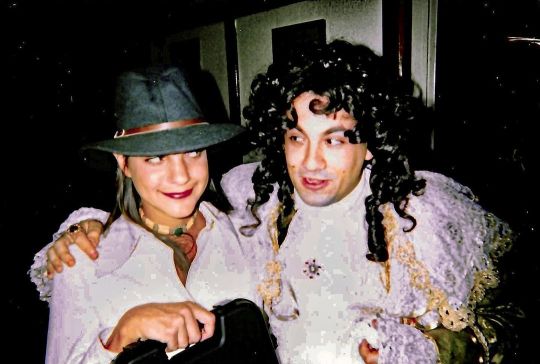
Flashback Friday to @DirtbagsBar with @HeatherK333, in October 1994. It was Halloween of our senior year at @UArizona, and she’d dressed as #CarmenSandiego, while I’d gone as #LouisXIV (still my best costume, to date). If only we’d known, then, eh Kisko? 😂 Meanwhile, does anyone know if my Platinum Polo Card is still good? #GetIntoIt #Halloween #HeatherKisko #Dirtbags #RideTheCyclone #PoloCard #TucsonAZ #College #UofA #GoodTimes #GreatMemories #Friends #Family #Costumes #The90s #FlashbackFriday (at Dirtbag's) https://www.instagram.com/p/Coy5NZ2un-U/?igshid=NGJjMDIxMWI=
#carmensandiego#louisxiv#getintoit#halloween#heatherkisko#dirtbags#ridethecyclone#polocard#tucsonaz#college#uofa#goodtimes#greatmemories#friends#family#costumes#the90s#flashbackfriday
0 notes
Text
youtube
SORORITY BIG LITTLE │ Vlog + What My Big Got Me │ University of Arizona
Published by Rebecky Vlogs
#University of Arizona#Sigma Kappa#UofA#Tucson#AZ#SigmaKappaAZ#university of arizona#tucson#sigma kappa#sigmakappa_az#uofasigmakappa#Youtube
0 notes
Photo
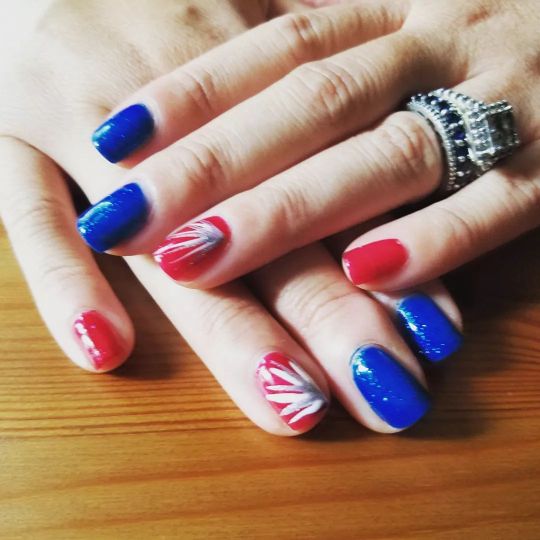
U of A inspired DIY nails. Shout out to my man for my nail art photoshoot ❤💙❤💙 . . . #uofa #nailsofinstagram https://www.instagram.com/p/CjGMcZPLa-78FnMt_NVJ3G0ZLw7KBM4uhqy9nU0/?igshid=NGJjMDIxMWI=
0 notes
Photo

So incredibly proud of my son graduating in environmental science. Go save the planet my love...🌎🦔🦓🦒🦐🦏🦎🦍🦂🦉🦉🦈🦇🦆🦅🦃🦁🐸🐿️🐷🐾🐶🐼🐻🐰🐺🐯🐮🐧🐭🐦🐬🐥🐫🐤🐪🐢🐩🐡🐨🐠🐟🐔🐜🐓🐙🐒🐘🐑🐗🐐🐖🐍🐕🐋🐊🐂🐈🐁🐇🐀🐆🐕🦺🐅🦥🐄🦦🐃🦧🦨🐚🦩🐛🦮🐝🐉🐞🐌🐣🐎🐱🐏🐲🐳🦀🐵🦄🦌🕊️🦕🕷️🦗😹🦡😺🦛🦚🦢🦝🦜 #proud #son #fils #amour #proudpapa #earth #savetheplanet #family #terre #uofa #uofagraduate #earthfocus #earthdayeveryday #earthofficial #love https://www.instagram.com/p/Cdhc103rdxK/?igshid=NGJjMDIxMWI=
#proud#son#fils#amour#proudpapa#earth#savetheplanet#family#terre#uofa#uofagraduate#earthfocus#earthdayeveryday#earthofficial#love
0 notes
Text
So I've been watching this series of videos where a research-focused psychologist goes through Jordan Peterson's work to see which of his ideas and arguments are based on solid empirical evidence. I love it, even though she does mistakenly say his background is in counselling psychology (my field) when he's actually a clinical psychologist.
Anyway, that's got me thinking about Jordan Peterson, and how his response to criticism is, "People have been after me for a long time because I’ve been speaking to disaffected young men — what a terrible thing to do, that is. [...] I thought the marginalized were supposed to have a voice.”
So, here's my theory: Young men of the 21st century have grown up in a culture that is specifically hostile and punitive towards them. However, I think that while girls and women can participate in this culture, it is as much or more the work of boys and men. And I think that the problem with Peterson is that he's not particularly good at helping his audience escape the maze they are trapped in--and he's absolutely opposed to any attempt to dismantle a maze that is actually of fairly recent manufacture.
Case in point: The metrosexual.
The word "metrosexual" was coined in 1994 by Mark Simpson, a gay writer whose settings seem to be perpetually fixed at "critique the shit out of it".
"Metrosexual" describes heterosexual men who might be mistaken as gay, because they are interested in things very common among gay men, including: Caring about whether they're attractive; caring about how their hair is cut and what products they use in it; caring about what clothes they wear; working out to make their bodies look better; frequenting nightclubs. To be "metrosexual" was, in some people's opinions, to be a "man-boy" searching for his "inner girl".
To be metrosexual was, in some ways, to be called someone who looked gay.
The term didn't really catch on until the early 2000s, when media became briefly obsessed with talking about which celebrities were "metrosexual" or not. In that era of hotly divided opinions over the acceptability of homosexuality and queerness, it was implicitly asking, "Who looks gay? Is he gay? Tell me, fellow broadcaster: How gay does this guy look to you?"
(They got to have their cake and eat it too. A liberal audience, desperate to gather as many LGBTQ+ people and allies as possible in their race for 50% acceptance of gay marriage, cherished any signs that people with social clout might be on their side. And a conservative one, watching the same discussion, would heartily enjoy seeing a rogues' gallery of degenerate Hollywood types paraded before them, their every effeminacy pointed out in loving detail.)
Which of course got us: The Retrosexual!
When everybody's helpfully compiling lists of all the things a man can do that look gay or unmanly, dudes who don't want to get the shit kicked out of them by homophobes know all the things not to do!
Therefore, being "manly" became strictly defined by what was off-limits. To be a Real Man meant you shouldn't care about whether you're attractive, or what soap you use, or how your hair is styled. You shouldn't enjoy dancing or get too enthusiastic about music. A Real Man cares about sports and beer and being on top! Dominant!! A WINNER!!!
And, so like, here's a secret: In Anglophone culture, we are very affected by the Puritan legacy that says pleasure is inherently sinful. Vanity and pride--caring about how you look and whether you're attractive--are literal gateways to the Devil. Gluttony, and therefore seeking pleasure at all, is another such. And in Puritan religious theology, women are inherently more sinful. Yes, it goes back to Adam and Eve, and how Eve was tempted into sin first. Long story short, things associated with women became associated with sinfulness, and sinfulness became associated with effeminacy. And for centuries, you haven't even needed to be religious to drink these attitudes from the groundwater.
Okay, that's not the secret, this is the secret: Pleasure is not inherently sinful.
And liking how you look and feeling attractive and paying attention to your sensuality and your emotional life and connecting with art in a real and vulnerable way can feel really good, if you're able to handle it well.
Being raised to be a Real Man in a world where masculinity is perceived to be actively under threat is so uniquely painful, I believe, because every attempt to define yourself as "not gay" means denying yourself one of life's pleasures, and telling yourself you never even wanted it in the first place.
And then those desperate to be Real Men found a way to take some of those things back in what is surely the most painful context possible: They are allowed strictly as tools of your heterosexuality and masculine need for dominance. You are allowed to care about grooming and dancing, etc, purely as a strategy in playing a game called "Getting Girls", where you either score or you don't, where not scoring means you're worthless and unlovable, and scoring is often... strangely unfulfilling and certainly not enough to fill the aching void inside of you.
The mistake both Peterson and his fanbase make is that they get to this point, and then think: The reason I feel so empty inside is... I just haven't gotten enough girls!
Maybe some guys get out of the maze by finding a woman who is allowed to care about things like affection and love and dancing and looking nice, and their connection with her lets them express all the other parts of their souls that didn't fit in the Real Man box, but can come out in roles like Boyfriend or Father.
But humans aren't telepathic, so relationships can only "fix" you so much as you're willing to do the work of nurturing your own soul in a safe environment, so for a lot of men the maze never ends, and sometimes they don't even get the fleeting joys of relationships or sex, since they're so fucked up about them!
At this point, I as a queer woman am like, "Solution's obvious! Dismantle the maze."
And Peterson, who has worked his whole life to achieve the status of Best Maze-Runner in All of Christendom, is clinging to it like, "NO! DOWN, YOU DARK CHAOTIC MOTHER! THIS MAZE GIVES MY LIFE MEANING! THIS MAZE CONNECTS ME TO MY FOREFATHERS! I CANNOT LIVE WITHOUT THIS MAZE!"
At which point, like... what can you do but just leave him there?
At least he's not in my area of specialization. The world would be too unkind if I had to deal with him in any professional capacity. I wish Clinical Psychology all their continued joy of him.
#feminist discourse#masculinity#jordan peterson tw#to be honest#the moment I learned he was from Fairview and went to the UofA I was like 'OH IT ALL MAKES SENSE'#it's not that all of Fairview is one way because Rachel Notley and other very fine people come from Fairview#but there is a specific breed of Guys Who Come From Fairview#Who Study Psychology At the UofA#Who Like To Monologue About Conservative Politics#I can't explain it#it's a type#iykyk i guess
1K notes
·
View notes
Text

Nikita Roy Choudhury-Psychology Major and Women's and Gender Studies Minor
Nikita Roy Choudhury (she/her) is currently in her second year at the University of Alberta. She is majoring in Psychology and minoring in Women and Gender Studies. In addition, Nikita is an active intern with the Community Service-Learning Humanities Program!
Why did you decide to take your first CSL course?
CSL 370 was the first course I took. Honestly, it was on a whim! I didn’t know much about CSL, but I was already working with the Humanities Program (HUM) at that point. Lisa Prins, who teaches the course, said, “Hey, you should take this course!” I tried it and took it with a friend, and it seemed really cool! As psychology students, we sit in a lecture hall writing notes all day, so being in more of a hands-on course seemed exciting to me. Lisa also showed me the syllabus, so I was excited to work with people in the community and expand outside of the university!
What was the most important/memorable lesson you learned?
There’s a lot that I could talk about! The biggest thing is that it changed how I view people while engaging in community service. In an academic space, there’s a lot of sitting and talking about service rather than going into communities and understanding what they would like to see happen. My favourite thing about CSL 370 was that we engaged with many different communities and organizations and spoke to people living in different circumstances. Hearing what community service looked like for the people we met and understanding what service means is much deeper than simply talking about it in a classroom.
Did CSL expose you to new experiences and knowledge? How and what?
For me, the biggest thing was understanding what education and learning means. Traditional academic spaces are usually very exclusive environments. The biggest thing with CSL is acknowledging the different ways of knowledge and learning and what it means to others. For instance, we visited organizations such as the Nina Haggerty, Stan Daniels, and community gardens! There were so many community organizations that I hadn’t known existed. Even with my experiences as a HUM intern, we talk with people from different communities and understand what learning means from their perspectives.
It also expanded my views on university as a whole. Heading into my first year, I originally thought, “Oh, this is so cool,” about the university experience. I am very privileged to be in university, but I am now at a point where I’ve reflected on my privilege. This isn’t the end-all-be-all because it isn’t the only way of learning. I don’t think I would have gotten to that reflection if I hadn't been immersed in the knowledge I’ve gained from CSL.
Has your experience with CSL led you to build new social connections?
Working with HUM has been so world-opening for me. It’s cool because we went back to many of the community organizations we visited in CSL 370, and I stayed connected with them through my work with HUM. By meeting people and seeing the many community organizations throughout the city, I would have never had that experience if I hadn’t taken CSL 370. Specifically, with HUM, I would have never known about the various departments and buildings. Even meeting people from within the university, such as the CSL team, wouldn’t have happened if I hadn’t gotten involved. I definitely have made a lot of connections.
In addition to taking CSL courses, you are also an active intern for HUM. Can you share insight into your role and what you love most about it?
I have been working with HUM for a year and a half since winter 2023! I am an active intern in the HUM 101 class. We provide snacks and meals for students, so my role consists of grocery shopping and helping to set up the weekly classes alongside Lisa and Bonita. This year, we have two HUM classes. One is off-campus in the Dunluce community, and the other is on campus. I am involved in the courses with the Dunluce community, helping with setup and preparation. At times, I help make sandwiches, salads, and snacks for the students. I love this job and really love the people I work with!
The biggest thing is being around the students who come to the classes! That’s my absolute favourite part! Because I’ve been with HUM for nearly two years, I've formed great connections with the students, and working with adult learners is refreshing. They bring a different perspective from the people in my classes. I’ve noticed that people taking the HUM classes have a real passion for knowledge and love learning. With the university being a very exclusive space, it’s nice to see people who want to learn regardless of the barriers. They have exciting perspectives, and I love the class discussions. It’s about the people. That’s my favourite part about this role.
Why did you decide to take up an internship position with HUM 101?
At the time, I was working in retail and looking for other jobs. In the Women’s and Gender Studies mailing list, I found the HUM internship job posting during my first year. Because it was my first year, I didn’t know what interning meant, so I thought, “I’ll put my name in and see!” I didn’t get the position for the first semester, but in the second semester, they reached out and asked if I wanted to be the HUM intern. I was so happy! It was great when I was asked to stay with the team after the first semester, and now I’m here!
Does your experience with Humanities 101 and CSL, more broadly, help you in your career/future endeavors?
Definitely. I understand that within the university space, many of the major psychologists we study typically come from privileged backgrounds, and their views on psychology have often been associated with people in privileged positions. So, my views have shifted on working with people as a whole. A huge reason for that has been HUM and CSL more broadly. Getting access to therapy and seeking psychologists is often possible if you are in a privileged position. My experiences with psychology, women’s and gender studies, and working with people from various backgrounds and communities have shifted how I want to become a clinical psychologist. Before, I just wanted to obtain my undergraduate degree, get an office, and be a psychologist. Now, I want to ensure that whatever I do involves working with people in community spaces and marginalized communities. I don't think that insight would have come to me if I had never been involved in HUM, which I like because I feel it's hard to get that experience unless you search for it in university spaces. So, I'm really lucky that I’ve gained experience with CSL.
How would you sum up your experience with CSL in one sentence?
CSL provides opportunities to learn and grow outside of institutional education.
0 notes
Text
😭??
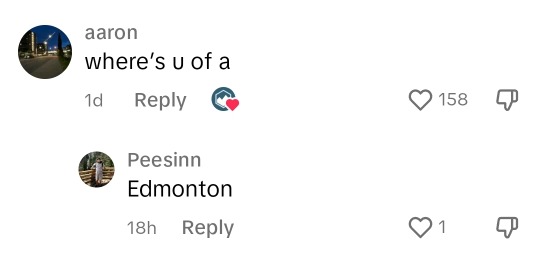

15 notes
·
View notes
Text
im. nnnnnnnnnnnnnnnn.
#i have been informed today that me and the one other remaining member of our department#are now cut down to 22.5 hours a week. again.#also. on the same day learned that the money from my grandma is getting distributed.#and its 43 thousand dollars.#my brother also put out the idea of both of us going in together on a place when he moves to edmonton#which. i mean. honestly fuck edmonton.#but its close enough to calgary i can see friends#and UofA is there for me to continue with computer science for more job security and options#and I would love to live with my brother for a while#its more practical than immediately being able to afford a rural farmhouse somewhere outside of calgary#and would be an amazing middle step to being able to make that happen in a couple years given that id actually be in province while looking#and. fuck. im so tired of having to do everything on my own because im single.#its been a fucking day. im going to have to go back to living on like $100 food budget a month again#while staring at 43k sitting in a savings account and fucking refusing to touch it#bc its the only chance i will have at owning a place for decades#ugh. its been a lot. im so god damn tired.
3 notes
·
View notes
